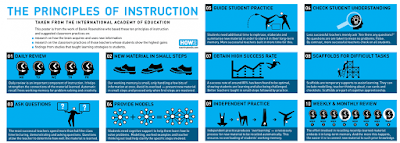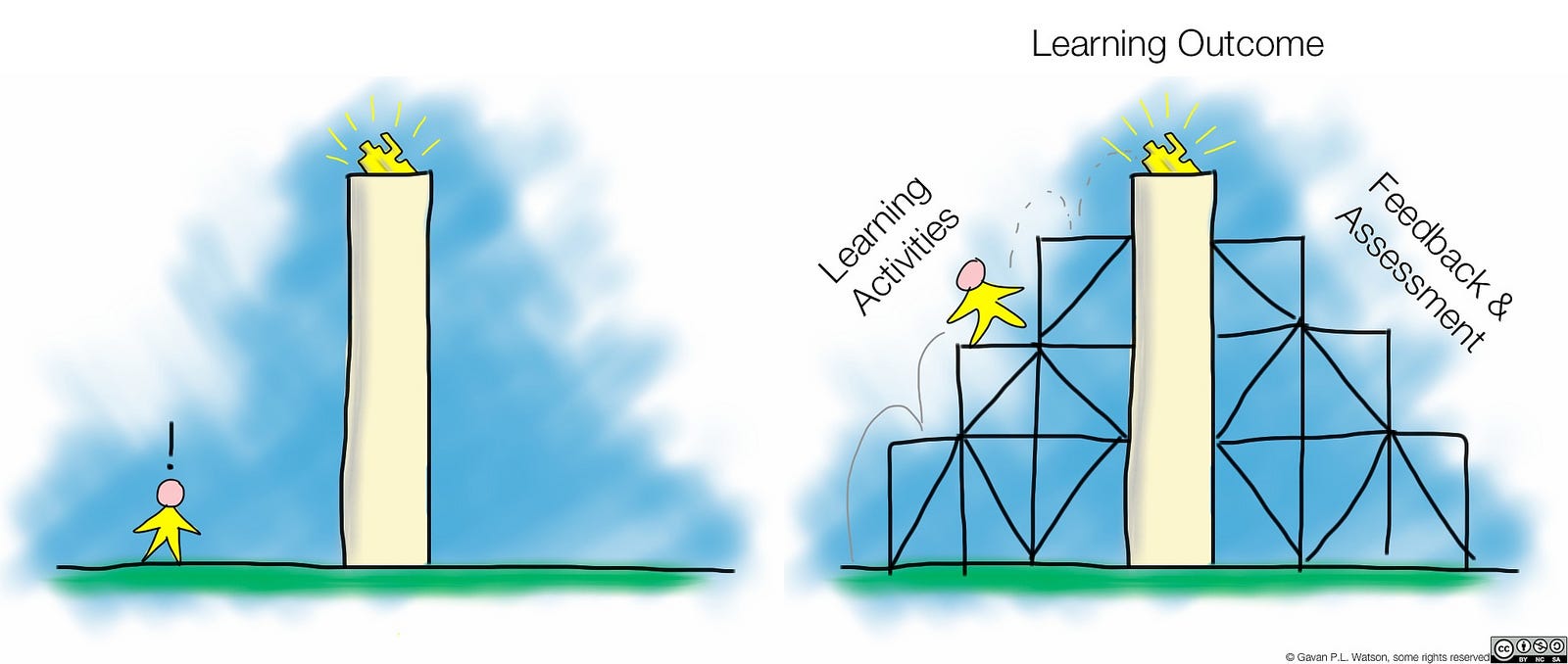A passive learner is one that engages in learning at a superficial level; rather than be interested in thoughtful enquiry a passive learner will process information, such as copying or reading, without actually thinking about its meaning and therefore fail to encode any of the information into their long term memory and make any meaningful progress.
The key question for teachers is to understand where this passivity comes from. In some cases it can be to do with a student's home life; through an upbringing of low expectations and a lack of parental engagement in the child's learning, a habit of passivity towards education can be developed. This and the wider problem of low cultural capital can cause passivity in the classroom - a problem that is difficult for an individual teacher to address.
Another possibility is that students may not be receiving enough or the correct differentiated or scaffolded learning. This may mean that students are not able to access the information they are being taught in a meaningful way. This can lead to disengagement and student acceptance that they cannot exert control over their learning process. This inhibits the progress and growth of the individual and as a result de-motivates the student - this can lead to behavioural challenges including passivity. In this case an individual teacher can make a difference and this will be the focus of my research.
 |
| A poverty in cultural capital can mean a student lacks the habits of engaging in learning discussions making it difficult for them to access education, a subsequent failure in education can then lead to demotivation and passivity. |
The aim of my research is to engage year 11 low-middle ability students who are extremely passive and disengaged learners. Many of these students lack focus and find it difficult to concentrate and stay on task. They lack motivation to do their work and often copy from the board, text-book or partner without engaging in the knowledge content and attempting to understand or process the information. They also struggle answering exam questions and do not use the differentiated worksheets/task-sheets effectively to help them answer the questions. Some of the students have very little confidence in themselves and have a negative outlook towards the work and the exam results; often saying they thought they would fail their GCSE exams.
In preparation for the GCSE exams, students needed to gain curriculum knowledge as well as practice exam skills. The 12 mark question was particularly challenging for them as they were required to evaluate a statement and formulate a thoughtful response with evidence to support their opinions. Although students had a planning sheet they rarely achieve more than 3 marks despite giving a lengthy answer. This only demotivated them and resulted in low self confidence.
Literature Review
A change in how information is received, interpreted and used can have a profound impact on student outcomes. In Principles of Instruction, Rosenshine presents 10 research-based principles of instruction. These principles come from three sources: (1) research in cognitive science, which focuses on how our brains acquire and use information; (2) research on master teachers, and (3) research on cognitive supports to help students learn complex tasks. This is effective instructional procedures, such as thinking aloud, providing students with scaffolds, and providing students with models. The focus of this research would be to explore point 3 - research on cognitive supports to help students learn complex tasks.

One principle is to present new material in small steps with student practice after each step. Small amounts of new material is presented at any time, and then students are assisted as they practice this material. This is because our working memory is small. It can only handle a few bits of information at once and too much information swamps our working memory. Presenting too much material at once may confuse students because their working memory will be unable to process it.
Providing students with models and worked examples can help them learn to solve problems faster. Rosenshine mentions that students need cognitive support to help them learn to solve problems. Teacher modelling and thinking aloud while demonstrating how to solve a problem are examples of effective cognitive support. Worked examples are another form of modelling that has been developed by researchers. Worked examples allow students to focus on the specific steps to solve problems and thus reduce the cognitive load on their working memory.
Providing students with scaffolds for difficult tasks: The teacher provides students with temporary supports and scaffolds to assist them when they learn difficult tasks. Scaffolds or instructional supports help students learn difficult tasks. These temporary supports are gradually withdrawn as learners become more competent, although students may continue to rely on scaffolds when they encounter particularly difficult problems. Providing scaffolds is a form of guided practice. Scaffolds include modelling the steps by the teacher, or thinking aloud by the teacher as he/she solves the problem.
 |
| Providing scaffolded tasks for learners can make daunting tasks achievable and increase motivation. |
Additionally, it has also been found that scaffolding helps students learn more by working with a teacher to achieve their learning goals. Through research, Vygotsky found that children needed to interact with others who are more intelligent than they currently are in order to learn. These instructors or peers are the “scaffolding” who help the student expand their learning boundaries and learn more than they would be able to on their own.
Furthermore, Nicolas Pino-James mentions in the 'Golden Rules for Engaging Students in Learning Activities' that it is important to foster a sense of competence. The notion of competence may be understood as a student's ongoing personal evaluation of whether he or she can succeed in a learning activity or challenge. Schunk and Mullen (2012) have found that effectively performing an activity can positively impact subsequent engagement. To strengthen students' sense of competence in learning activities, the assigned activities could include feedback that helps students to make progress.
Intervention
The sample group used were 6 passive students from my year 11 GCSE class. The students were between 15-16 years old and a mixture of male and female students. The intention was to help improve their answers to 12 mark exam questions and also to help students evaluate their knowledge and to change their mindset to a positive attitude and reduce passivity.
I created and designed a template which students can use to plan and write an answer to a 12 mark exam question. Prior to this, students were using a template to plan an answer, however, they were unable to process the information or evaluate in a meaningful way.
To help scaffold the learning and in addition to the template, I created a colour coded template on a display board. Whilst they were using the template to plan their answer, I used the display to give direct instruction. I instructed them on what sections I wanted them to work on. This meant that they were not overwhelmed with the task and that it was manageable. I also provided examples so students understood what they had to do in each section. I looked through answers as students were working and gave feedback.
 |
| Display board showing the strategy |
 |
| Example of a template used in the intervention |
The evidence I collected are the answers they have written for 12 mark questions before using the template and then the answers given after using the templates. This helped to understand whether, this template and the method of breaking it up into manageable tasks, coupled with instruction improved their answers. I also interviewed students to gain an insight on there mindset and the effectiveness of the support as well as made casual observations.
Impact
The intervention was successful for 1 student out of the 6. The student was able to identify what was required of him and how to structure the answer. He was able to follow instruction well and went from a negative mindset and feeling like he would fail to becoming much more positive about his efforts and his outlook on the exam. Furthermore, giving feedback motivated him to work hard and learn. He felt much more confident in attempting to answer a 12 mark question and about his exam in general. He spoke about how hard he was revising for RE; this change in attitude was a great improvement in comparison to his attitude before.

Further research
For further research, I would like to work with a larger focus group of passive students and low achieving students in year 7 and collate the evidence up until their GCSE exams. I believe this would result in more reliable data and also have a bigger impact on their engagement as a problem like passivity needs to be pre-empted in earlier year groups. I would also interview students at the beginning and end of the process to get a better idea of their mindset and how they found the template I created. This would give a good idea of whether students were passive due to disinterest or because they genuinely struggled.
- Scaffold learning by breaking down new or complex skills or knowledge into smaller parts. After introducing each new part, practice it first before moving on to the next task.
- Be aware of the reasons behind a students passive nature. In my focus group, some students did not believe they could achieve their target grade and did not believe in themselves, in which case they can be helped through my intervention. However, some lacked motivation to learn or work at all, simply because they lacked motivation in a subject due to historic passivity and other issues beyond the classroom. This is not something that can be helped by my intervention alone. If students are passive for this reason then other measures and motivational techniques need to be devised.
- Rosenshine - Principles of Instruction
- Lasarkis - Engaging the Passive Learner
- Pino-James - Golden Rules for Engaging Studnets in Learning Activities
- Dils - The Mystery of Passive Students




